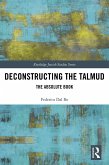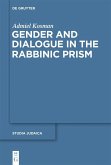This critical study traces the development of the literary forms and conventions of the Babylonian Talmud, or Bavli, analyzing those forms as expressions of emergent rabbinic ideology. The Bavli, which evolved between the third and sixth centuries in Sasanian Iran (Babylonia), is the most comprehensive of all documents produced by rabbinic Jews in late antiquity. It became the authoritative legal source for medieval Judaism, and for some its opinions remain definitive today. Kraemer here examines the characteristic preference for argumentation and process over settled conclusions of the Bavli. By tracing the evolution of the argumentational style, he describes the distinct eras in the development of rabbinic Judaism in Babylonia. He then analyzes the meaning of the disputational form and concludes that the talmudic form implies the inaccessibility of perfect truth and that on account of this opinion, the pursuit of truth, in the characteristic talmudic concern for rabbinic process, becomes the ultimate act of rabbinic piety.
Dieser Download kann aus rechtlichen Gründen nur mit Rechnungsadresse in A, B, BG, CY, CZ, D, DK, EW, E, FIN, F, GR, HR, H, IRL, I, LT, L, LR, M, NL, PL, P, R, S, SLO, SK ausgeliefert werden.
Hinweis: Dieser Artikel kann nur an eine deutsche Lieferadresse ausgeliefert werden.









